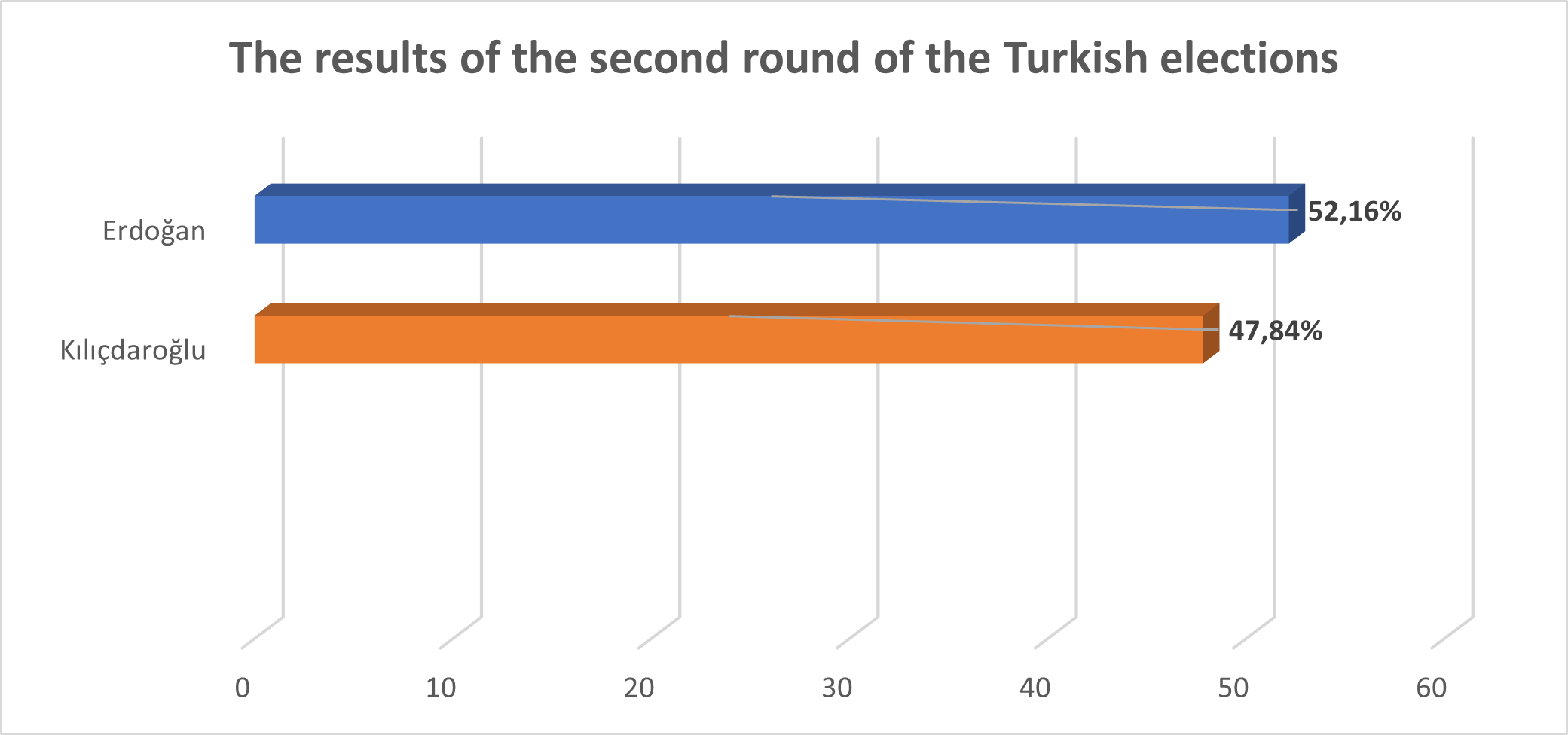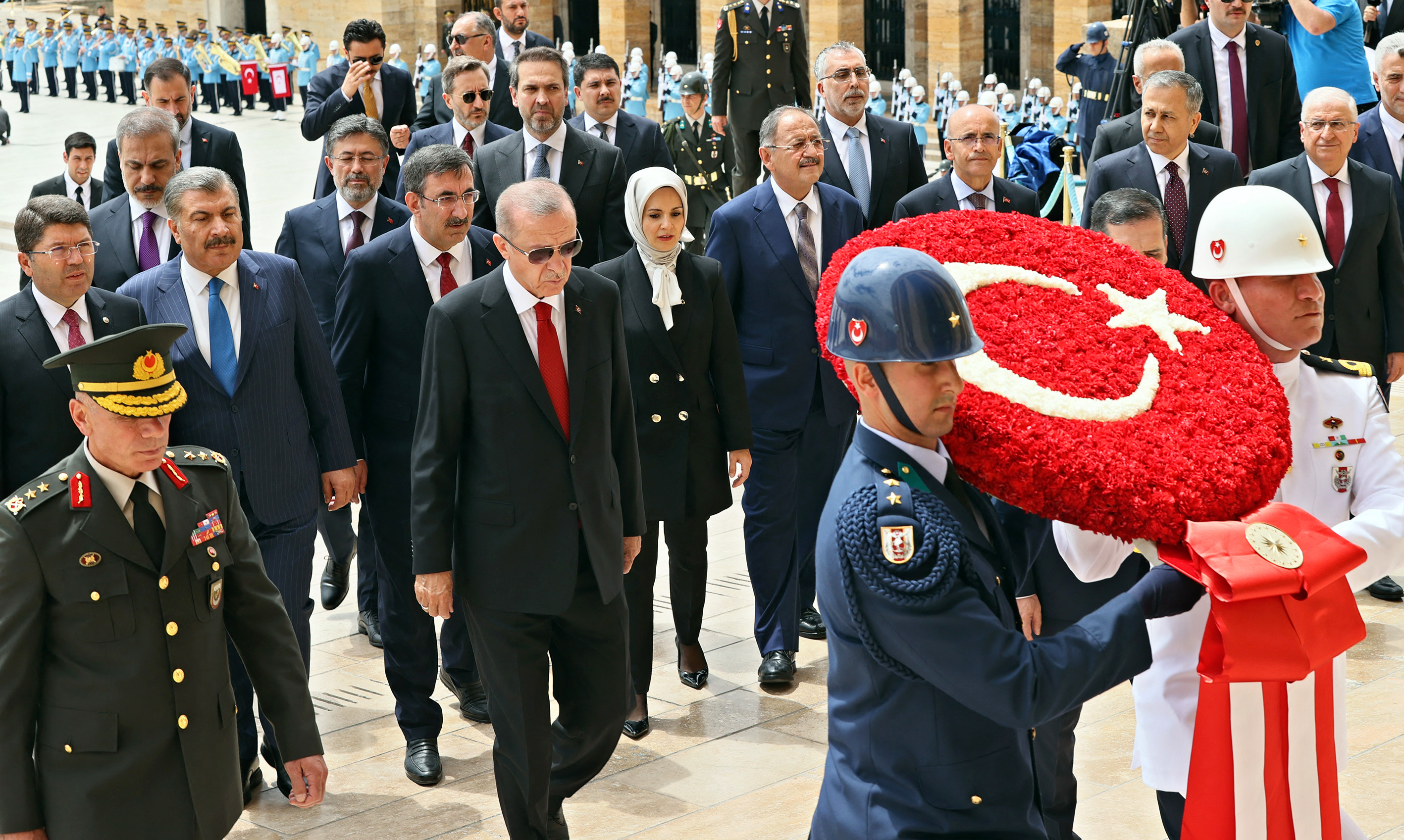

Türkiye faces major challenges after the elections. The country’s economy is in crisis, caused primarily by high inflation, a depreciating currency, and a high cost of living. In addition, Türkiye’s relations with the U.S., the EU, and some of its regional neighbors can be described as strained due to issues such as the Syria crisis, hostilities with Cyprus, complaints about respect for human rights and the state of democracy, and the blocking of Sweden’s NATO accession. In response to the various problems, Recep Tayyip Erdoğan made significant changes in the composition of his government, which will lead to serious political changes in Türkiye in some areas.
President Recep Tayyip Erdoğan announced Türkiye’s new government on June 3 after being sworn in. 16 new ministers were appointed and only two former cabinet members remained in office. In the cabinet, only Health Minister Fahrettin Koca and Tourism Minister Mehmet Nuri Ersoy kept their previous posts. They were the ones who had not run for a parliamentary mandate.
Below we have compiled the most important information on the newly appointed cabinet members:
Mehmet Şimşek, who served as finance minister and deputy prime minister between 2009 and 2018, was reappointed as finance minister. It is important to note that critics blame Erdoğan’s interest rate reduction policy for high inflation and the collapse of the economy. The president has lowered interest rates to promote growth, which contradicts the traditional economic view that interest rates should be raised to fight inflation. Şimşek’s appointment is widely interpreted as Erdoğan’s departure from policies that many economists have called “unorthodox”. The new finance minister worked as an economist at the U.S. Embassy in Ankara and later at Merrill Lynch before entering politics. He is known for his pragmatic approach and advocates economic reforms to boost growth, attract foreign investment and ensure fiscal discipline.

The appointment of Hakan Fidan as head of the Foreign Ministry to succeed Mevlüt Çavuşoğlu, one of Türkiye’s longest-serving diplomats, was somewhat surprising. Fidan, who is one of Erdoğan’s closest confidants, has headed the Domestic Intelligence Service (MIT) since 2010 and was previously an adviser to the current president in the prime minister’s office. Fidan served as a non-commissioned officer in the Turkish army from 1986 to 2001 and headed the Turkish Development and Cooperation Agency from 2003 to 2007.
Yaşar Güler was appointed defense minister. The 69-year-old Güler served 49 years in the armed forces and has been chief of the General Staff since 2018. After his predecessor Hulusi Akar became defense minister, he served as military chief during Türkiye’s military intervention in Syria in 2019-2020 and oversaw subsequent military operations in Syria and Iraq. Türkiye’s new defense minister stressed that his main priority will be increased resolve and the fight against terrorism.
After the transition from a parliamentary to a presidential system in 2018, the post of vice president was created, which Fuat Oktay held in the cabinet from the beginning. Now, however, business leader Cevdet Yılmaz has been appointed vice president. He previously served as development minister, AKP deputy chairman for economic affairs and deputy prime minister for economic affairs. The 56-year-old Yılmaz has been chairman of the Turkish Parliament’s Planning and Budget Committee since November 2020.
An important change is the appointment of Ali Yerlikaya as interior minister, replacing Süleyman Soylu, who had held the post since 2018. The 55-year-old Yerlikaya has been governor of Istanbul since 2018, but was previously governor of Gaziantep, Tekirdag, Agri and Sirnak provinces.
Mahinur Özdemir Göktaş was appointed minister of family and social affairs, making her the only female minister in the cabinet. Born in Brussels, Öztaş previously represented the Christian Democrats in Belgium for two legislative terms and was Türkiye’s ambassador to Algeria from 2020 to 2023.
Erdoğan appointed Yusuf Tekin, rector of Hacı Bayram Veli University, as head of the Ministry of Education. Tekin’s previous appointment as rector had caused controversy. Shortly before he took office, the requirement of at least three years of service as a professor was abolished by presidential decree, and Tekin became rector two months after his appointment as professor.
In the new cabinet, three former vice ministers were appointed as ministers. They include Alparslan Bayraktar, who was deputy minister at the Ministry of Energy and Natural Resources, Mehmet Fatih Kacır, who became minister of industry and technology, and İbrahim Yumaklı, who became minister of agriculture and forestry.
In addition, Erdoğan appointed Abdülkadir Uraloğlu, director general of highways, as minister of transportation and infrastructure, and Vedat Işıkhan as minister of labour and social security. In addition, the president also replaced Justice Minister Bekir Bozdağ, whose place is taken by Yılmaz Tunç, who is deputy chairman of the AKP parliamentary group.
Erdoğan appointed Ömer Bolat, former chairman of the Independent Union of Industrialists and Businessmen (MUeSİAD) party, as trade minister. Bolat has been chairman of the board of the pro-government conglomerate Albayrak Group since May 2000. Finally, Osman Aşkın Bak, who previously held the post in 2017-2018, became minister of youth and sports.
The author is researcher at the Eurasia Center